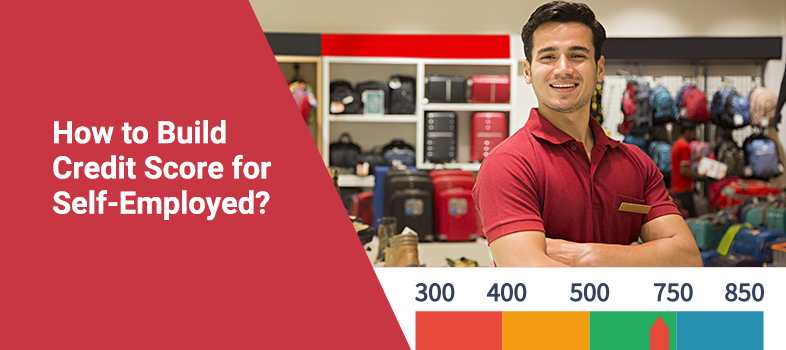There are no two ways about the fact being a self-employed is advantageous. However, it has its own merits & demerits ( income irregularities) setting Being self-employed has its pros (setting up fixed work hours) and cons (unpredictable income). So, does it affect your credit score?
There could be a big question mark on whether you’re at loss if you’re self-employed. If you’re on your own, you might be scared whether you’ll receive finances to get a car or home. Let’s be factual that running a set-up doesn’t put you at risk of poor credit score. Although, there are a few lenders out there who wouldn’t want to give money to self-employed.
Let’s understand how to build credit score if you’re self-employed:
Does Self-Employment Show Up on Your Credit Report?
It is already known that a credit report includes information about your credit accounts, bankruptcies and hard inquiries over a time period. It comprises of relevant personal information like name, current and previous addresses, and past & current employers.
Ofcourse, your employment past reflects on your credit report & score report based on information you provided when applying for credit in the past. But being self-employed, there are ways to build a good credit score. Even a self-employed is expected to have a past financial & job record which will help to understand their financial stability and creditworthiness.
Using this history, all the reputed credit bureaus are passed on the information & then it shows on your credit score also.
If you’ve ever noticed then the past history doesn’t have a direct impact on your score however the lender gets a fair idea.
Lenders do consider your debt-to-income ratio specifically when you’re running a business to see how much debt do you carry in comparison to the income earned. Their decision will be based your overall credit conditions.
How to Build a Credit Score When Self-Employed?
If you’re self-employed and facing issues to improve your credit, then you can try the following options:
- Check your credit report and score so that you can judge where you stand financially and check out the loans you can qualify. You can look for an appropriate credit option online, conduct research and find the ones which suit your credit score the most. Don’t act over-ambitious.
- Try to approach a credit union instead of going to a bank or financial institution along with someone with good credit score to cosign your loan. You may also succeed to get a secure loan by offering a collateral in exchange. If you’re thinking about a car loan, aim for a bigger down payment. This will reduce your overall cost of borrowing & easier for approval.
- Look out for someone you can trust with a good credit score & take you on as an authorized user on their credit card. If you’re looking for a business loan, then consider other convenient options like a business credit card, invoice financing or microloans.
- As a self-employed, work on your credit score improvement to get better offers in future. Quickly shift up your credit score by paying your bills on time, paying up your due debts so that you keep your credit utilization ratio under 30%, and keeping up existing credit accounts open even when not regularly used and limiting your applications for a personal loan. You can also add on-time utility and mobile bill payments to your credit report, increasing your credit scores.
If you run into issues getting loans, checking your credit score and taking steps to enhance it can help. With very little effort, you can enjoy all the independence a business has to offer and be able to get credit when you need it.

